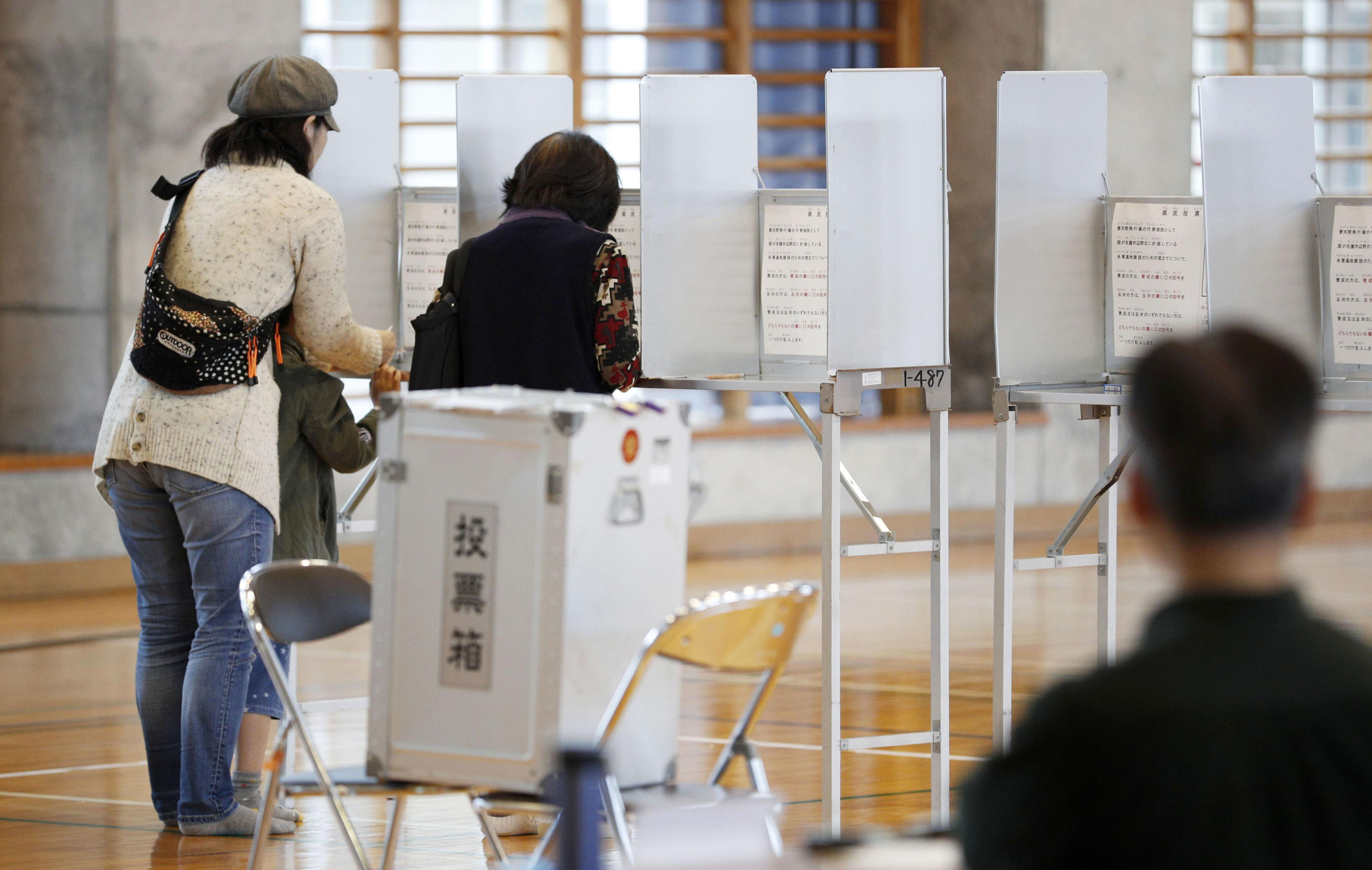
Japanese Get Public Vote On US Army Base Relocation

People prepare to vote in a referendum at a polling station in Naha, Okinawa, Japan (Picture: Kyodo News via PA).
A referendum is taking place on the Japanese island of Okinawa on a controversial plan to move the US military base there to a remote site on the coast.
The vote is highly symbolic but non-binding with the Japanese government showing no sign of changing course if the vote goes against the move.
The relocation of Futenma base was first agreed in 1996 after US servicemen gang-raped a local 12-year-old schoolgirl.
Futenma, which is in a residential area, has long been criticised as dangerous, with Washington eventually agreeing to transfer some personnel to Guam.
The plan is to replace the base with another on a coastal landfill in an area called Henoko but there is concern wildlife such as coral reefs will be hurt.
"There are so many American troops here. Of course, 99 percent of them are good people, but then there is that 1 percent who do evil things.
It's hard for us," said Tomomichi Shimabukuro, who runs a seaside inn called Churaumi-kun.
"I feel most people of Okinawa are going to vote in protest of the plan."
Japanese media surveys have suggested voters are likely to reject the Henoko plan.
Nearly 1.16 million residents, 18 or older, are eligible to vote, and turnout is expected to be high.
Interest has been strong, not only in the rest of Japan but among pacifists internationally.
The referendum asks: "On the landfill for the construction of the U.S. military base planned by the government in Henoko, Nago city, to replace Futenma air base," with the answers being: "I agree," "I oppose," and "Neither."
Although Okinawa makes up less than 1% of Japan's land space, it houses about half of the 54,000 American troops stationed in Japan, and makes for 64% of the land used by the US bases, under a bilateral security treaty.
WATCH: What US personnel are doing in Japan
Japan relies heavily on the U.S. for its defence, and the government has said it will not abide by the referendum, even if the Henoko plan is rejected.
Over the years, Henoko has drawn countless protests and sit-ins.
Sceptics are worried the costs for a landfill base like Henoko may keep growing, the runway may end up being too short and the government may not close Futenma, after all.
Colonel John Hutcheson, a spokesman for US Forces Japan, said the Henoko agreement is a bilateral deal aimed at closing Futenma, while maintaining what he called vital capabilities for regional security.
He declined to comment on the referendum, saying it was a domestic political issue.
"We are committed to maintaining good relations with local communities on Okinawa and do our best every day to balance their concerns with the necessity to maintain readiness in support of our treaty commitments," he said.









